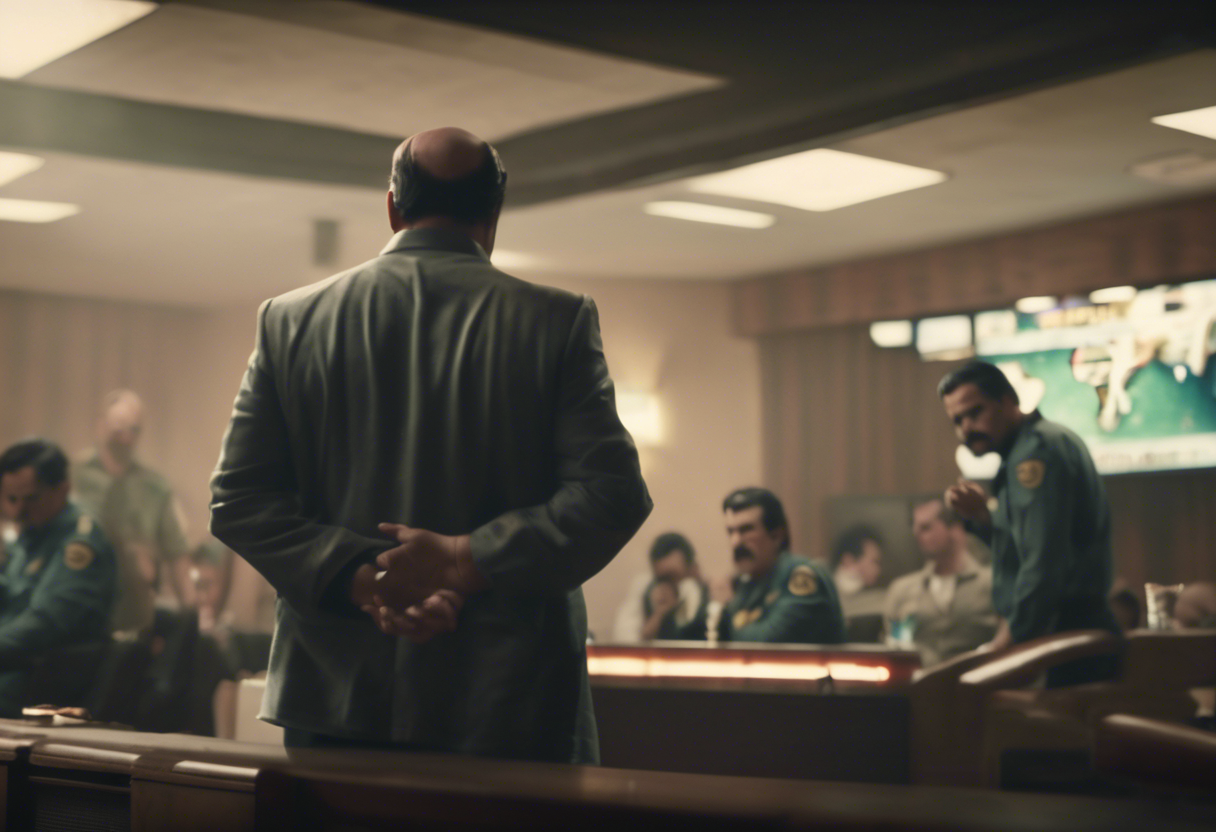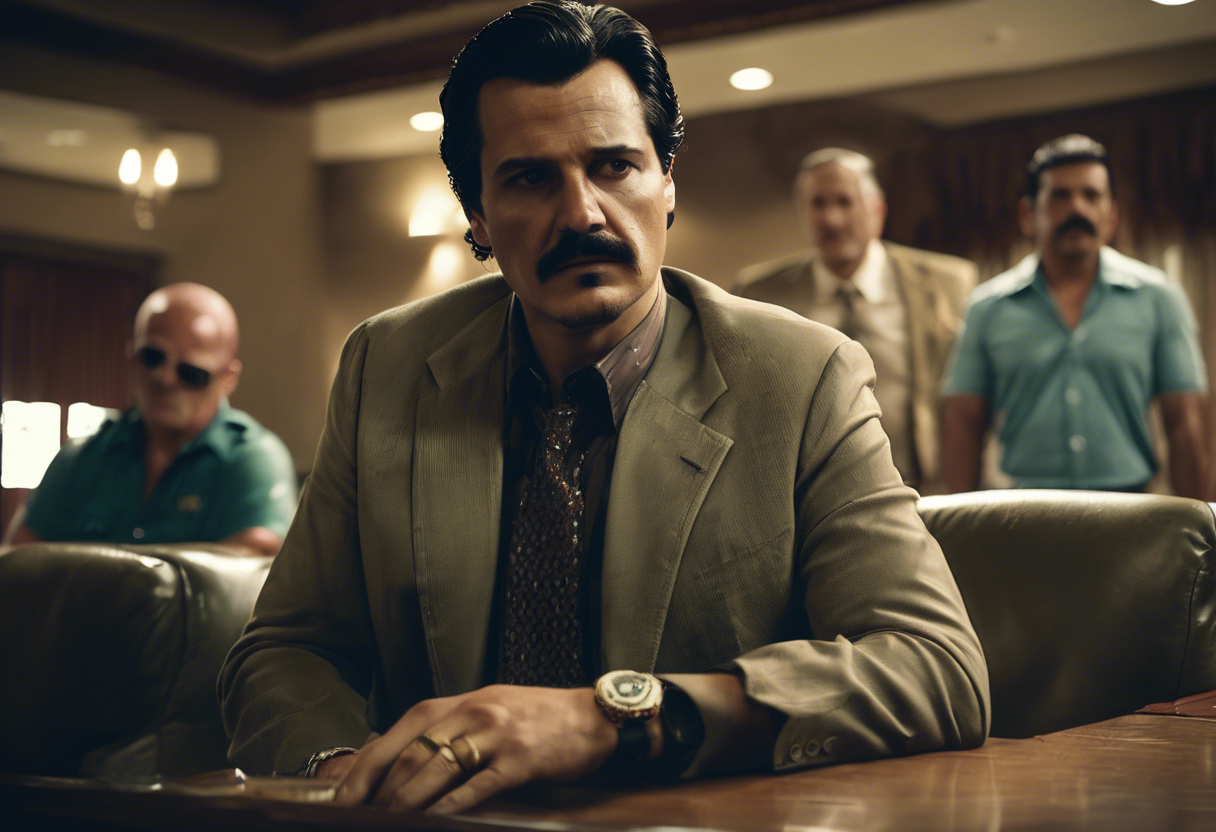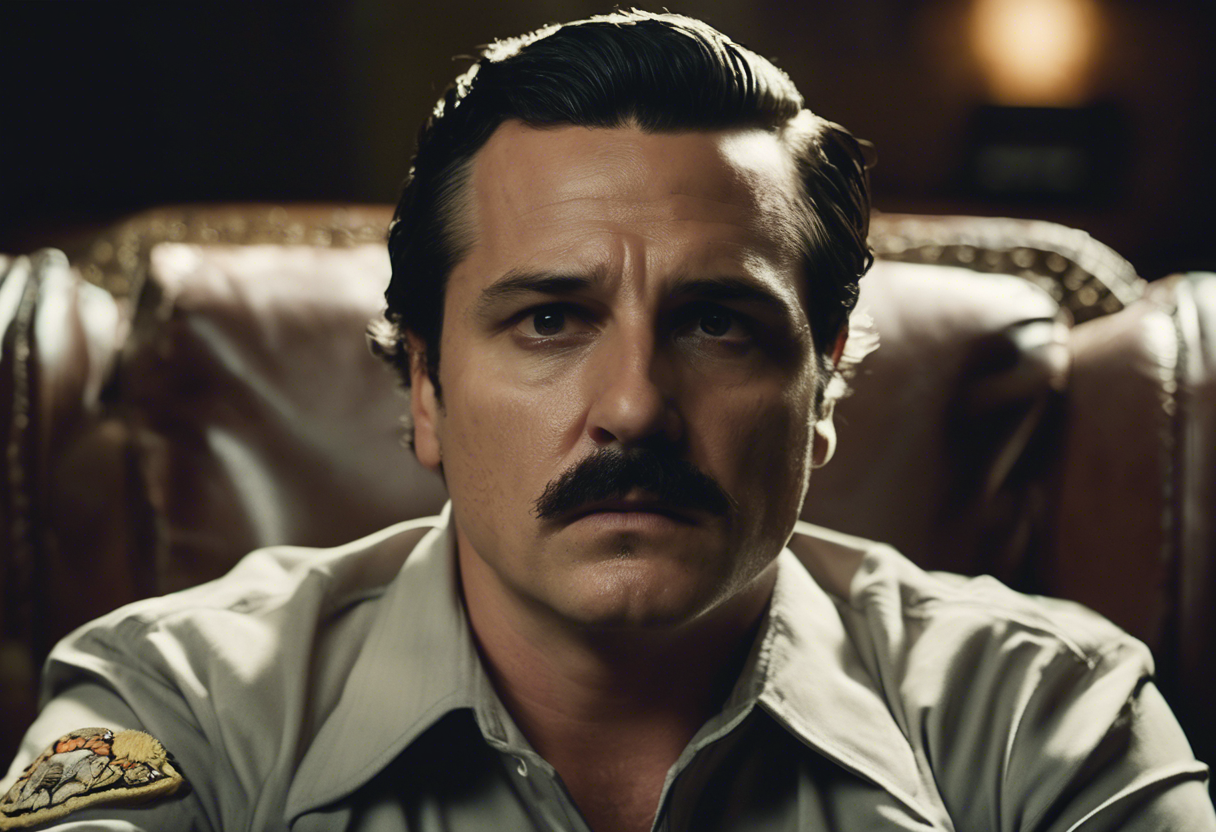Contents
Introduction
Narcos is a critically acclaimed Netflix series that delves into the world of narcotics trafficking, particularly focusing on the rise and fall of prominent cartels in Colombia. Created by Chris Brancato, Carlo Bernard, and Doug Miro, the series is known for its meticulous research, gripping storytelling, and strong character development. The third season of Narcos marks a significant shift in focus, moving away from the Pablo Escobar era and towards the rise of the Cali Cartel.
Season 3, Episode 1, titled "The Kingpin Strategy," is directed by Andrés Baiz and written by Carlo Bernard, Doug Miro, and Zach Calig. This episode sets the stage for the new narrative arc, introducing viewers to the "Gentlemen of Cali" and their intricate operations. The Cali Cartel, led by Gilberto Rodríguez Orejuela and Miguel Rodríguez Orejuela, is portrayed as a more sophisticated and business-oriented organization compared to Escobar’s Medellín Cartel.
Plot Summary
"The Kingpin Strategy" opens with a dramatic shift in the narcotics landscape following the death of Pablo Escobar. The Cali Cartel, now the world’s largest drug syndicate, is preparing for a significant announcement that will outline their future business strategy. The episode introduces key figures within the Cali Cartel, including Gilberto Rodríguez Orejuela, Miguel Rodríguez Orejuela, and Pacho Herrera, who are collectively known as the "Gentlemen of Cali." These characters are depicted as calculating, ruthless, yet refined individuals who prefer to operate under the radar, unlike the more flamboyant and violent Escobar.
The Gentlemen of Cali gather their associates for a surprise announcement, revealing their intention to exit the drug trade and transition into legitimate businesses. This move is a strategic attempt to avoid further conflict with law enforcement and to secure their financial futures. However, this transition is not without its challenges, as the cartel must navigate internal conflicts and external threats from rival cartels and law enforcement agencies.
Meanwhile, DEA Agent Javier Peña, played by Pedro Pascal, returns home after his successful but grueling mission to bring down Pablo Escobar. Peña is battle-worn and weary, yet he remains determined to pursue the Cali Cartel. His return to the DEA is marked by a discussion with his father about his future, where he reaffirms his commitment to taking down the Cali Cartel. Peña’s character arc in this episode is significant as it highlights his personal struggles and his unwavering dedication to his mission.
The episode also delves into the clandestine tracking methods and retaliation tactics employed by the Cali Cartel. One of the leaders, Chepe, is introduced as openly gay, adding a layer of complexity to the characters and challenging traditional stereotypes associated with cartel members. The CIA and DEA’s conflicting interests are also brought to the forefront, as they navigate their cooperation and competition in the pursuit of the Cali Cartel.
As the Cali Cartel prepares for their transition, they face numerous challenges, including the need to eliminate rivals and maintain control over their territories. The episode showcases the cartel’s sophisticated business operations, including money laundering and international trade, which are integral to their survival and growth.
Throughout the episode, the narrative is interspersed with scenes of Peña’s personal life and his professional struggles. His character serves as a bridge between the viewer and the complex world of narcotics trafficking, providing a human perspective on the otherwise brutal and impersonal drug war.
The "Kingpin Strategy" also explores the theme of the drug war as an unwinnable conflict. The episode underscores the idea that cutting off one head of the snake only leads to the growth of more, highlighting the cyclical nature of the drug trade. This theme is reinforced through the rise of the Cali Cartel following Escobar’s demise, illustrating that the demand for drugs and the lucrative nature of the trade ensure its continuation.
Themes and Symbolism
One of the primary themes in "The Kingpin Strategy" is the transition from illegitimate to legitimate business. The Cali Cartel’s desire to exit the drug trade and become legitimate entrepreneurs symbolizes the broader theme of seeking legitimacy and respectability. This theme is juxtaposed with the brutal reality of their current operations, highlighting the moral ambiguities and complexities of their world.
Another significant theme is the personal cost of the drug war. Peña’s character arc in this episode emphasizes the toll that his mission takes on his personal life and mental health. This theme is symbolic of the broader human cost of the drug war, affecting not just those involved in the trade but also those who are tasked with combating it.
The episode also explores the theme of identity and stereotypes. The introduction of Chepe as an openly gay character challenges traditional stereotypes associated with cartel members, adding depth and complexity to the narrative.
Cultural Impact
"The Kingpin Strategy" was well-received by audiences and critics alike, continuing the series’ tradition of gripping storytelling and strong character development. The episode’s focus on the Cali Cartel and their sophisticated operations added a new layer of complexity to the narrative, engaging viewers who were eager to see how the series would evolve after the conclusion of the Escobar storyline.
The influence of Narcos on pop culture is evident in various references and homages in other media. The show’s portrayal of the drug war and its characters has become a benchmark for similar narratives, influencing how these stories are told in film and television.
Critical Reception
Critics praised "The Kingpin Strategy" for its engaging narrative and strong character introductions. However, some critics noted a lack of character development for the Cali Cartel leaders, feeling that they were not as deeply explored as Pablo Escobar was in previous seasons [1][4].
Viewers generally appreciated the episode’s pacing and the way it set up the new season’s narrative arc. The return of Javier Peña was particularly well-received, with many praising Pedro Pascal’s performance and the character’s continued relevance to the story.
Legacy
"The Kingpin Strategy" marks a significant turning point in the Narcos series, transitioning from the Escobar era to the rise of the Cali Cartel. This episode’s focus on the business-oriented and sophisticated operations of the Cali Cartel has had a lasting impact on how narcotics trafficking is portrayed in media.
The episode’s themes of transition, personal cost, and identity continue to resonate with audiences, making it a pivotal part of the series. The character of Javier Peña remains a central figure in the narrative, and his arc in this episode sets the stage for the rest of the season.
In conclusion, "The Kingpin Strategy" is a compelling and well-crafted episode that effectively introduces the new narrative arc of Narcos Season 3. Its impact on the series and its influence on pop culture are undeniable, making it a significant contribution to the world of television drama.







